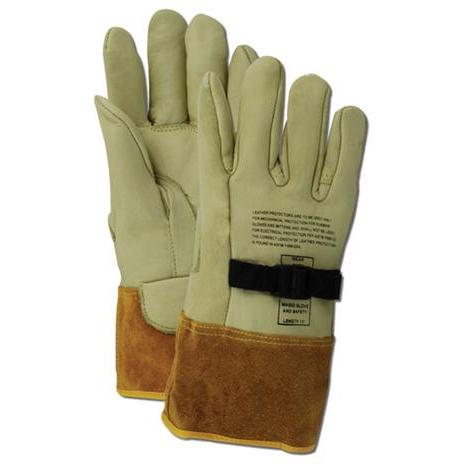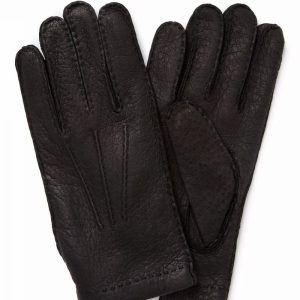Description
Electrical Gloves Insulating gloves offer personal hand protection for workers against electrical shocks when working near or on live wires, cables and electrical equipment including substation switchgear and transformers – risk assessment identifies electrical shock during the jointing of cables or excavating around live cables as a potential cause of accident which can be avoided when appropriate safety precautions and gloves are worn. Where protection against arc incident is required please see arc flash gloves with 50cal protection (Class 4) and for complete protection refer to our range of arc flash clothing. Each pair of electrical rubber insulating gloves must comply with the IEC 60903 and EN 60903 standards and as a result of this, each pair undergoes voltage, ageing and mechanical testing. There are 3 main types of insulating gloves:-
Standard Insulating Gloves – rubber gloves that provide very high dielectric properties which must be used in conjunction with leather gloves
Mechanical Insulating Gloves – enhanced impact and excellent mechanical protection against tears and punctures without requirement for protective overgloves
ASTM D120 Gloves – American Society for Testing and Materials is the world’s largest source of standards (arrived at by voluntary consensus) for materials and goods




Reviews
There are no reviews yet.